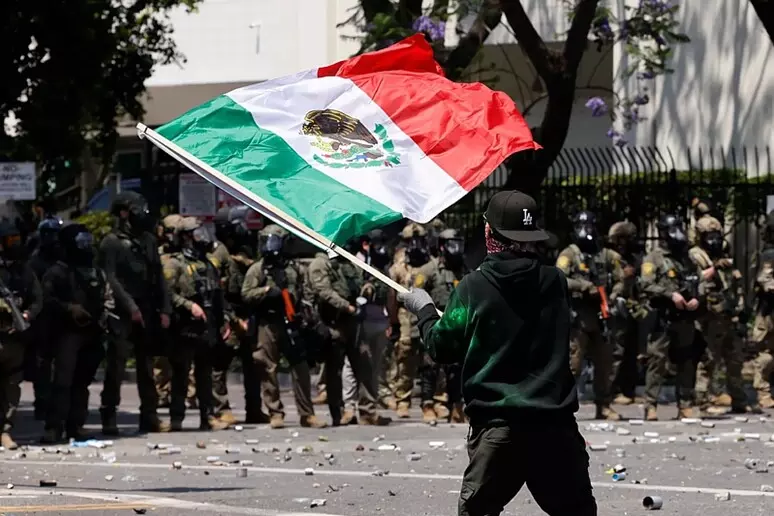According to a YouGov poll conducted between June 16 and 18, 2025, more than a third of American voters who do not support Donald Trump believe the United States has already become a dictatorship.
Among Democratic voters, 35 percent agree with that statement. So do 30 percent of independents. Among those who supported Vice President Kamala Harris in the last election, the figure rises to 37 percent. These numbers are not easily dismissed as partisan paranoia—particularly since the overall percentage, including Republican respondents, has risen from 18 percent in February to 24 percent today.
The poll was released just as President Trump ordered 2,000 National Guard troops to be deployed in California—an unprecedented move taken over the objections of Governor Gavin Newsom and justified by the White House on grounds of restoring “public order,” following days of unrest in Los Angeles. The protests had erupted in response to aggressive ICE raids, which triggered street demonstrations, police charges, and a wave of arrests.
Secretary of Defense Pete Hegseth confirmed that Marine units had been placed on high alert and were prepared to intervene “if necessary.” It is the first time in six decades that a president has mobilized the National Guard against the will of a state government.
In this climate, the notion that the country is sliding into authoritarianism no longer feels like rhetorical exaggeration. A pattern of power consolidation—marked by the domestic use of the military, the erosion of Congressional authority, and an ongoing assault on the judicial branch—has deepened a sense that the constitutional fabric is under strain.
The military parade on June 14, officially billed as a commemoration of the Army’s 250th anniversary, also happened to coincide with the president’s birthday. To many observers, it resembled less a civic celebration than a display of strongman theatrics. “It looked like Moscow in the 1980s,” one commentator remarked.
Earlier this month, Governor Newsom compared Trump to a dictator after the president publicly suggested he should be arrested. “Was that Erdogan? Or some other autocrat? Or was that the president of the United States?” Newsom asked during an interview on the MeidasTouch podcast.
What is at stake now is not merely a clash over immigration policy or economic vision. The fracture runs deeper—through the very definition of what American democracy is and what it ought to be.
Trump’s response has been consistent: personal attacks, purges, disdain for the press and institutional norms. But it is his willingness to deploy military force on U.S. soil that for many, has marked a new and troubling threshold.










